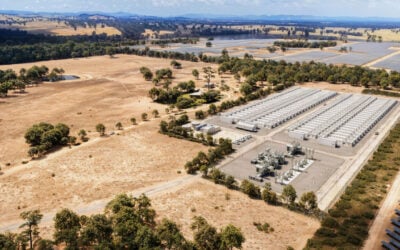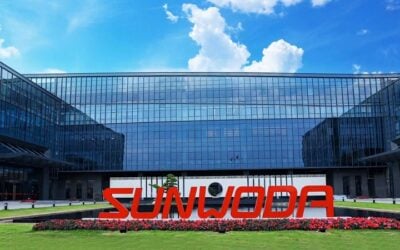Electrovaya’s Litastore 48V, 2.3kWh residential battery module. Image: Electrovaya.
Canada-headquartered lithium-ion battery manufacturer Electrovaya increased its revenues year-on-year in the financial year, which finished at the end of September, but the company also reported increased losses.
The company, which purchased major German manufacturer Litarion in 2015 giving it an annual production capacity of around 500MWh, makes batteries for a range of applications from forklift trucks to stationary storage. Electrovaya aims to differentiate itself from the pack by touting its all-ceramic separators, especially for utility-scale applications.
The company made revenues of US$19.5 million for FY2016, which was a 17.5% increase on 2015, when it made US$16.6 million. However, it made a net loss of US$8.8 million, as opposed to FY2015 when its net loss was just US$3.2 million. Electrovaya explained this increase as partly attributable to a rise in research investment costs for battery management systems and systems engineering for its OEM (original equipment manufacturer) customers of US$1.6 million. There were also significant expenses associated with its manufacturing facilities in Germany, including the costs associated with transitioning from selling components to value added products.
In its stationary storage segments, Electrovaya said it made around US$7.2 million from a purchase order for residential storage systems from an unnamed OEM, following on from the signing of a multi-year “Strategic Supplier Agreement”. The sale was however made in November, excluding it from being reported as part of the results. Electrovaya’s equipment for residential storage systems includes a 48V, 2.3kWh battery module. At utility-scale, the company referred to just one project so far for US utility Con Edison, a half-megawatt system that will utilise the ceramic separators and is now expected to be completed in the first half of this year.
Try Premium for just $1
- Full premium access for the first month at only $1
- Converts to an annual rate after 30 days unless cancelled
- Cancel anytime during the trial period
Premium Benefits
- Expert industry analysis and interviews
- Digital access to PV Tech Power journal
- Exclusive event discounts
Or get the full Premium subscription right away
Or continue reading this article for free
The company also highlighted successes during the year in selling into the electric bus market, as well as forklifts, where Li-ion battery packs can be dropped straight into replace lead-acid batteries. Electrovaya said it expected future growth to come from all of the above mentioned sectors, as well as in materials handling sector sales to both OEMs and to end-users.
In an interview with Energy-Storage.News in June, Electrovaya business development director Kunal Phalper said that the company sees lithium-ion batteries as less of a commodity than solar cells and did not expect a “race to the bottom” on price as was seen in the PV industry.





